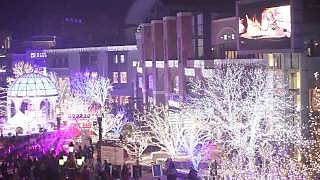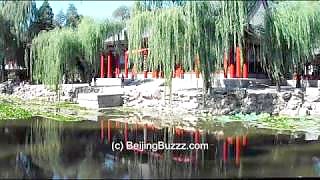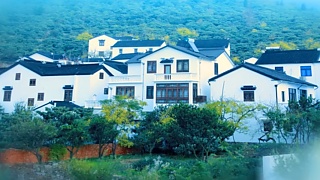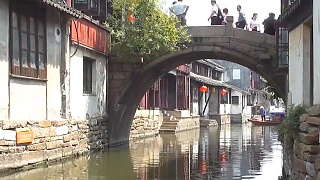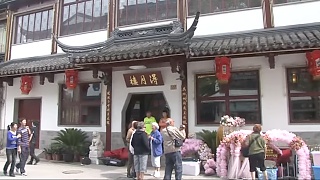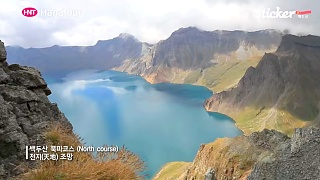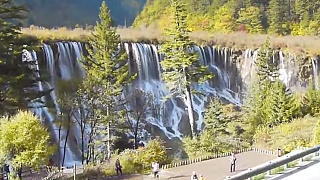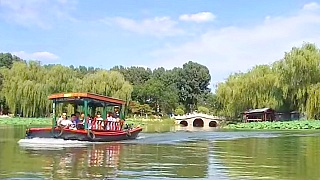Considering the dry climate of Beijing (especially in winter) and that the Gobi desert is not far away, it is quite surprising how many lakes and canals exist in Beijing. Beijing's Geography Beijing municipal district is formed by the alluvial plain between the YongDing River and the ChaoBai River. This makes Beijing's geography similar to the ancient city of Mesopotamia in the middle east. The YongDing River runs down from the TaiHang Mountains, carrying with it gravel and boulders, sometimes as big as beer barrels. Because of its heave silt and turbulent torrent during the high water season, the river used to change its course frequently, hence its former name, WuDing River, meaning 'capricious river'. But people wished it to be permanently stable, so it was renamed the YongDing River (meaning 'settled forever' in Chinese). The river has lived up to its auspicious name only in the past few decades, thanks to the dredging and reinforcement of the embankment undertaken by the government. The Chaobai River drains the gullies of the YanShan Mountains and flows to the east of Beijing. In the past few decades, some large dams have been built on the river to form the Miyun and Huairou Reservoirs. These provide the water for Beijing's canals and lakes as well as drinking water. The Grand Canal of China The Grand Canal of China, the longest man-made waterway in the world (by far), and the earliest (also by far), begins in HangZhou in East China (south from Beijing) and terminates in Beijing, running for a total length of 1,794 kilometers. Digging started in the late Spring and Autumn period (about the 5th century BC) and it was twice extended and widened, once during the Sui period and again in the Yuan Dynasty. Because China's terrain slopes eastward-from the highlands and mountains in the west to the hinterlands on the shore of the Pacific, all the major rivers in China run west to east. The Grand Canal was the sole waterway for south-north transportation and communication. During the Yuan Dynasty, the docks at JiShuiTan in Beijing, then called the Greater Capital (DaDu), were crowded by boats loaded with grain from the south. 'Ji' is an ancient (probably the first) name for Beijing, dating from around 1000 BC; 'shui' means 'water'. After the mid-19th century, motor roads and railways gradually replaced the Grand Canal for transportation. However, it is safe to say that without the Grand Canal, there would have been no prosperity for Beijing in ancient times. Beijing's Lakes In Beijing there are quite a few names of places that end with the word 'hai' (meaning 'sea' or 'lake') such as QianHai, BeiHai and HouHai. The word 'hai' dates from the time when the Mongols under Kublai Khan first entered Beijing to begin the Yuan Dynasty. With Mongolian territory having no sea border, the Mongols were delighted to see so many lakes in Beijing and called them haizi, meaning park in Mongolian. Later Haizi was simplified to hai and people wrote the Chinese character for hai. Beijing's Wells Being on an alluvial plain means that wells are a feasible way to extract ground water and in ancient times drinking water in Beijing was mostly acquired this way. One of the busiest shopping districts in Beijing today is WangFuJing, which means 'Well of the Prince's Mansion'. Wangfujing owes its name to the fine quality of the water from two wells in side streets here. In the past, Beijing residents relied on water drawn form wells in lanes. Unfortunately, most of the wells produced salty or bitter water. Fine quality well water was sold at a good price. The imperial family only drank water from the springs in the Western Hills. The Jade Spring in the Western Hills Although most of the wells in Beijing produced bitter water, superb sweet water gushes out of the Jade Spring in the Western Hills. Qing Emperor QianLong was the one Chinese emperor who traveled extensively throughout his land. After comparing the spring water in the Western-Hills with the water of other springs in various parts of the country, he concluded that the Jade Spring water was the best and conferred on it the title 'Spring of the First Order under Heaven'. In those days, the water of the Jade Spring was the monopoly of the imperial family. Jade Spring Hill, or YuQuanShan, has become one of the eight favorite scenic spots in Beijing, for its spring and its beautiful landscape.
Beijing, the capital city of China, is a vibrant metropolis steeped in history, culture, and modernity. Here's a brief overview of what you can expect as a tourist in Beijing:
Historical Landmarks:
The Great Wall of China: One of the most iconic structures in the world, the Great Wall is easily accessible from Beijing. Mutianyu and Badaling sections are popular among tourists.
Forbidden City (Palace Museum): A UNESCO World Heritage Site, this vast imperial palace complex was home to Chinese emperors for over 500 years. It houses numerous halls, courtyards, and historical artifacts.
Temple of Heaven: A masterpiece of Chinese architecture, this ancient temple complex served as a place of worship for emperors to pray for good harvests.
Summer Palace: A stunning ensemble of lakes, gardens, and palaces, the Summer Palace served as a retreat for emperors during the Qing dynasty.
Tiananmen Square: One of the largest city squares in the world, Tiananmen Square is flanked by important landmarks such as the Monument to the People's Heroes, the Great Hall of the People, and the Mausoleum of Mao Zedong.
Cultural Sites:
Beijing Hutongs: Explore the narrow alleyways and traditional courtyard residences of Beijing's historic neighborhoods. You can take a rickshaw tour or simply wander around on foot.
Beijing Opera: Experience traditional Chinese opera performances at venues like the Liyuan Theater or the Chang'an Grand Theatre.
798 Art District: A hub of contemporary art and culture, this former industrial area is now home to numerous galleries, studios, and cafes.
Modern Attractions:
Olympic Park: Visit iconic structures such as the Bird's Nest (National Stadium) and the Water Cube (National Aquatics Center) from the 2008 Beijing Olympics.
CBD (Central Business District): Marvel at the futuristic skyline of Beijing's modern business district, which includes landmarks like the CCTV Headquarters and the China World Trade Center Tower III.
Culinary Delights:
Peking Duck: Indulge in Beijing's most famous dish, crispy roast duck served with pancakes, scallions, and hoisin sauce.
Street Food: Explore the city's vibrant street food scene and sample local delicacies like jianbing (savory crepes), lamb skewers, and dumplings.
Practical Tips:
Transportation: Beijing has an extensive public transportation system, including the subway, buses, and taxis. However, traffic can be heavy, so plan your travels accordingly.
Language: While English is not widely spoken, especially outside tourist areas, many signs and transportation announcements are in English. It's helpful to carry a translation app or a phrasebook.
Weather: Beijing experiences four distinct seasons, with hot summers and cold winters. The best times to visit are spring (April to June) and autumn (September to October) when the weather is mild and comfortable.
Etiquette: Respect local customs and traditions, such as removing your shoes before entering someone's home and using both hands to pass or receive items.
Beijing offers a rich tapestry of experiences for tourists, blending ancient heritage with modern innovations. Whether you're fascinated by history, culture, or culinary delights, there's something for everyone in this dynamic city.
 Beijing’s Lakes, Canals, Springs and Wells
Beijing’s Lakes, Canals, Springs and Wells